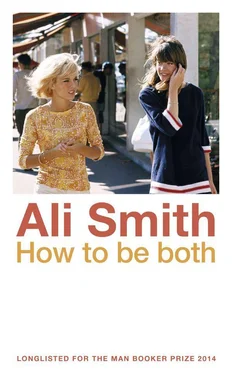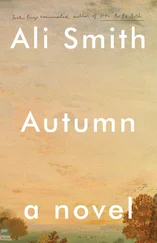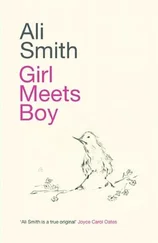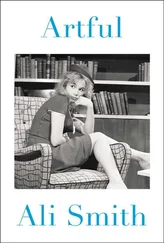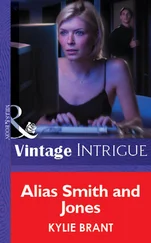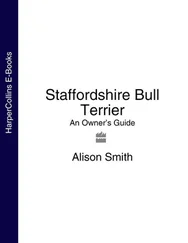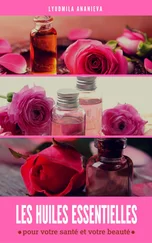I wiped the crumbs off the board in the doorway (the Falcon watched them fall on his threshold, narrowed his eyes) and on the paper though the boy had vanished I mapped his constellation there, there, there the back of his head, base of his spine, place of this foot, the other, this arm, the other, and sketch in a head (well the head barely mattered, it wasn’t what mattered) but I spent most time on his back foot, the place with the curve of the sole on the rise: get it right, how it sprung the whole body, just that single detail and it’ll lift the whole picture like the foot lifted him: get it right and the picture itself will lift (cause the way he’d gone up the stone steps had made even the stone of them unheavy): he was off to a ceremony maybe, the boy? He had the torch lit though it was daylight, ergo I added the suggestion of a door so he’d need a lit torch, doubled a line into a lintel above his head for somewhere to go and I shaded in front of and round him so the torch in his hand had more purpose (made the flame on it like long hair flowing, but upward instead of downward, beauty of impossibility) then round him on the ground a scatter of small rocks, twig here, 4 or 5 by the wall, then right at the front 3 stones and a brickslice very like a slice of cheese all arranged round grassblades in a curtsey for the Falcon as if even grass will bow respectfully at such a man.
(After which, a final touch, there at the end of a grassblade, 2 or 3 points, a slip of the pen? a butterfly? for my pleasure alone cause no one else’d notice.)
Long gone, the picture, I expect.
Long gone the life I, the boy and the man I, the sleek good sweet-eyed horse Mattone I, the blushing girl I.
Long gone, torch bearer Ferara seen from the back, ink on paper folded torn eaten, wasp nest shredded into air burnt away to ash to air to nothing.
Ow.
I feel the loss, dull the ache of it
cause I had it, the place where his legs met his body, the muscular dark where his tunic flared up in the breeze as he went, I had it like telling the oldest story in the world cause there’s a very pure pleasure in a curve like the curve of a buttock: the only other thing as good to draw is the curve of a horse and like a horse a curved line is a warm thing, good-natured, will serve you well if not mistreated, and the curves of his sleeves concertina-ing down and back from his shoulders, blanket stitch then scallop-bite edge, round his waist a double yarnstrand to hold him well.
I like a twist of yarn, 2 strands twisted together for strength: I like a length of rope: the rope after a hanging they sold, I remember, in the market, was cut into pieces you’d buy for luck so you’d never yourself be.
Hanged, I mean.
What, — was, was I? –
surely not — never, was I, hanged? — oh.
Oh.
Was I?
No .
Pretty sure: I wasn’t.
But how did I, then? End?
I can’t recall an end at all, any end I ever, can’t, any, demise, no –
cause maybe –
maybe I … never ended?
Hey!
I did that picture: hey!
Can’t hear me.
Sunlight hitting the yellowing leaves, I was a child, small, on a stone slab warm from the sun, almost too small to walk I think and something was twisting itself down through the air and landed in the middle of the pool of horse piss, the foam and the bubbles nearly all off it but the smell of it still fine in the dip in the stone between the old path and the new path that he’d made in the yard for the carts for the stones, my father.
The thing that fell caused a circle to happen, a ring to appear in the piss: the ring widened and widened until it got to the edges and vanished.
It was a small black ball like the head of an infidel: it had a single wing, a hard and feathery-looking thing stuck straight out of it.
The ring that it made in the pool when it fell, though, was gone.
Where’d it go?
I shouted the words, but she was trampling cloth in the big half-barrel: she was making the cloth turn white with the soap, she was singing, didn’t hear me, my mother.
I called again.
Where’d it go?
She still didn’t hear me: I picked up a stone: I aimed at the side of the barrel, I missed, hit a chicken in its sidefeathers instead: the chicken made a chicken noise, jumped and nearly flew: it ran about in a dance that made me laugh, it panicked all the geese and the ducks and the other chickens: but my mother had seen the stone hit the chicken and she leapt out of the barrel and ran towards me with her hand in the air cause she was a despiser of cruel things.
I wasn’t, I said. I didn’t. I was calling you. But you were preoccupied so I threw it to get your attention. I didn’t mean to hit the chicken. The chicken got in the way.
She dropped her hand to her side.
Where did you learn that word? she said.
Which word? I said.
Preoccupied, she said. Attention.
From you, I said.
Oh, she said.
She stood in the dust with her wet feet: her ankles were beaded with light.
Where’d it go? I said.
Where’d what go? she said.
The ring, I said.
What ring? she said.
She got straight down and looked in the pool: she saw the winged thing.
That’s not a ring, she said. That’s a seed.
I told her what happened: she laughed.
Oh, she said. That sort of ring. I thought you meant a ring for a finger, like a wedding ring or a gold ring.
My eyes filled with tears and she saw.
Why are you crying? she said. Don’t cry. Your sort of ring is much better than those.
It went, I said. It’s gone.
Ah, she said. Is that why you’re crying? But it hasn’t gone at all. And that’s why it’s better than gold. It hasn’t gone, it’s just that we can’t see it any more. In fact, it’s still going, still growing. It’ll never stop going, or growing wider and wider, the ring you saw. You were lucky to see it at all. Cause when it got to the edge of the puddle it left the puddle and entered the air instead, it went invisible. A marvel. Didn’t you feel it go through you? No? But it did, you’re inside it now. I am too. We both are. And the yard. And the brickpiles. And the sandpiles. And the firing shed. And the houses. And the horses, and your father, your uncle, and your brothers, and the workmen, and the street. And the other houses. And the walls, and the gardens and houses, the churches, the palace tower, the top of the cathedral, the river, the fields behind us, the fields way over there, see? See how far your eye can go. See the tower and the houses in the distance? It’s passing through them and nothing and nobody will feel a thing but there it is doing it nonetheless. And imagine it circling the fields and the farms we can’t see from here. And the towns beyond those fields and farms all the way to the sea. And across the sea. The ring you saw in the water’ll never stop travelling till the edge of the world and then when it reaches the edge it’ll go beyond that too. Nothing can stop it.
She looked down into the horse piss.
And all from the fall of a seed, she said. You see that seed there? You know where it came from?
She pointed above us to the trees behind our house.
If we put that seed in the ground, she said, and we cover it with earth and it gets the chance, enough sun, enough water, with a bit of luck and justice it’ll make another tree.
The trees were much bigger than even the brickpiles: the trees went way beyond the roof of the house made by my father’s father’s father: we were a family of wallmakers and brickmen: it was what the men of our family did when they left boyhood: my family helped build the Est palaces, the Ests had rooms at all cause of us: we were historic, as anonymous wallmakers go.
I fished the seed out of the piss: it was a thing that has to fall to rise: it looked like a shrunken head like the heads that got put on the walls after uprisings but with a wing coming out the back of it: it smelt fine of horse: it had 1 wing not 2 like birds: perhaps that was why it fell: and cause it had, something would rise.
Читать дальше
